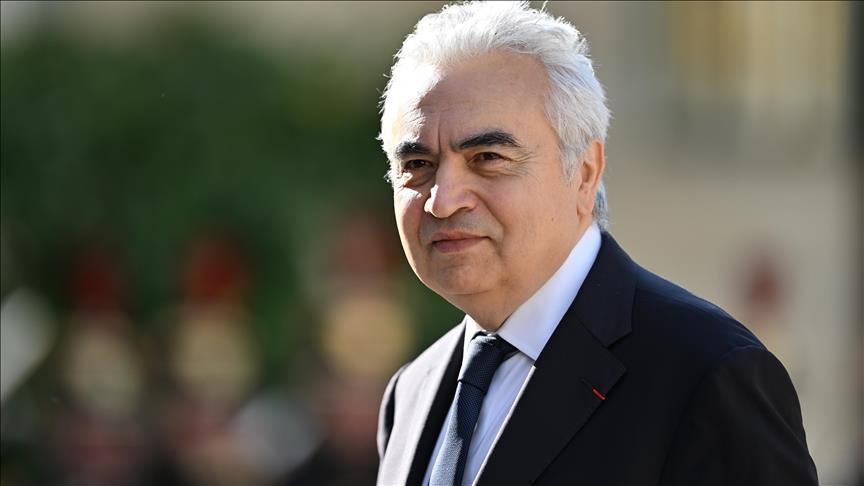The head of the International Energy Agency (IEA) on Friday called for efforts to prevent monopolies in the supply of critical minerals like copper and zinc, which are essential for clean energy technologies.
'Most of these critical minerals are currently controlled by just one or two countries and it is important to ensure diversity in clean energy,' Fatih Birol told Anadolu on the sidelines of the Future of Energy Security summit, co-hosted by the IEA and the UK government in London on April 24–25.
'If a single country holds a large share of these resources, it could pose a significant risk,' Birol added.
Birol highlighted that critical minerals like copper and zinc are vital for clean energy technologies, including solar panels, wind turbines, electric vehicles and batteries.
He noted a major transformation in the global energy sector, stating that while oil, gas, and coal remain important, most growth is now driven by clean energy sources.
Birol noted that China is a major player in the sector and has contributed significantly to lowering the cost of clean energy technologies.
However, he warned, 'This is not about whether a country is good or bad. If there is a technical problem or a geopolitical development in that country, entire energy supply chains could be jeopardized.'
'In this respect, it is not wise to put all eggs in one basket, diversification is necessary,' he added.
Control over these minerals is at the heart of a geopolitical race for technological dominance, and China holds a dominating lead.
According to the US Geological Survey's 2024 data, China produces 69% of the world's rare earths and controls nearly half of global reserves. It also dominates 90% of refining capacity, the crucial step that turns mined minerals into usable materials.
- Trade wars could dampen China's demand for natural gas
Birol said protectionist trade policies, which have created uncertainties in the global economy, could also impact the energy sector, stressing that trade in natural gas, oil and clean energy technologies is critically important.
Noting that countries seek to export the energy they produce while others aim to import it, Birol said: 'If serious trade barriers emerge, energy costs could rise. At the same time, these trade uncertainties could weaken the global economy, leading to a decline in demand, particularly for oil and natural gas.'
'In particular, China's demand for natural gas and liquefied natural gas could be expected to soften, he explained.
Commenting on the impact of trade wars on Türkiye, Birol said: 'I believe these trade wars could create serious problems for Türkiye, as they could for much of the world.'
“However, with smart policies, Türkiye could also seize some of the new opportunities that are emerging,' he explained.
After US President Donald Trump took office, his administration launched a series of tariff hikes and trade barriers, particularly targeting China.
Reporting by Nuran Erkul in London
Writing by Handan Kazanci
Anadolu Agency
energy@aa.com.tr


